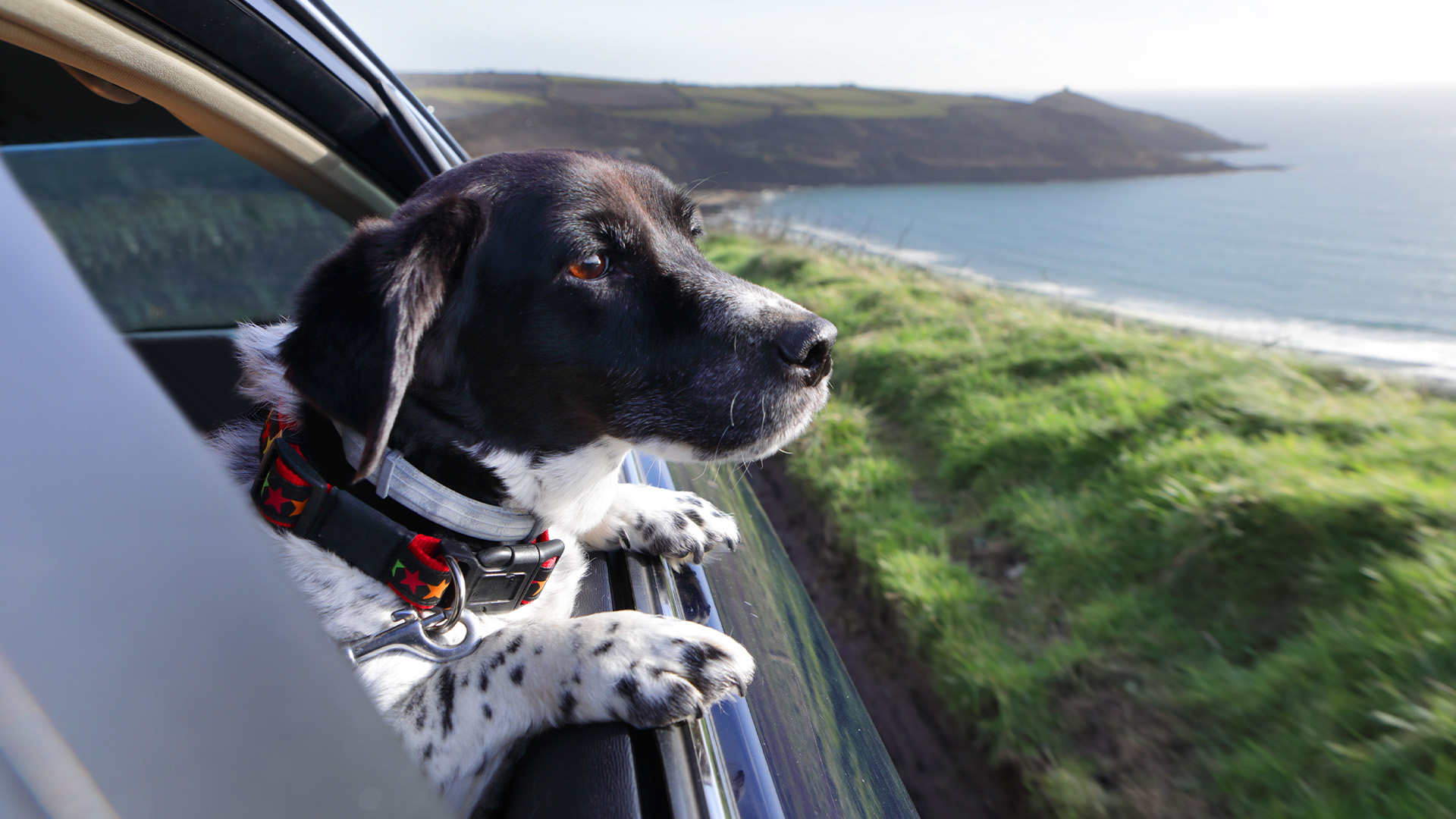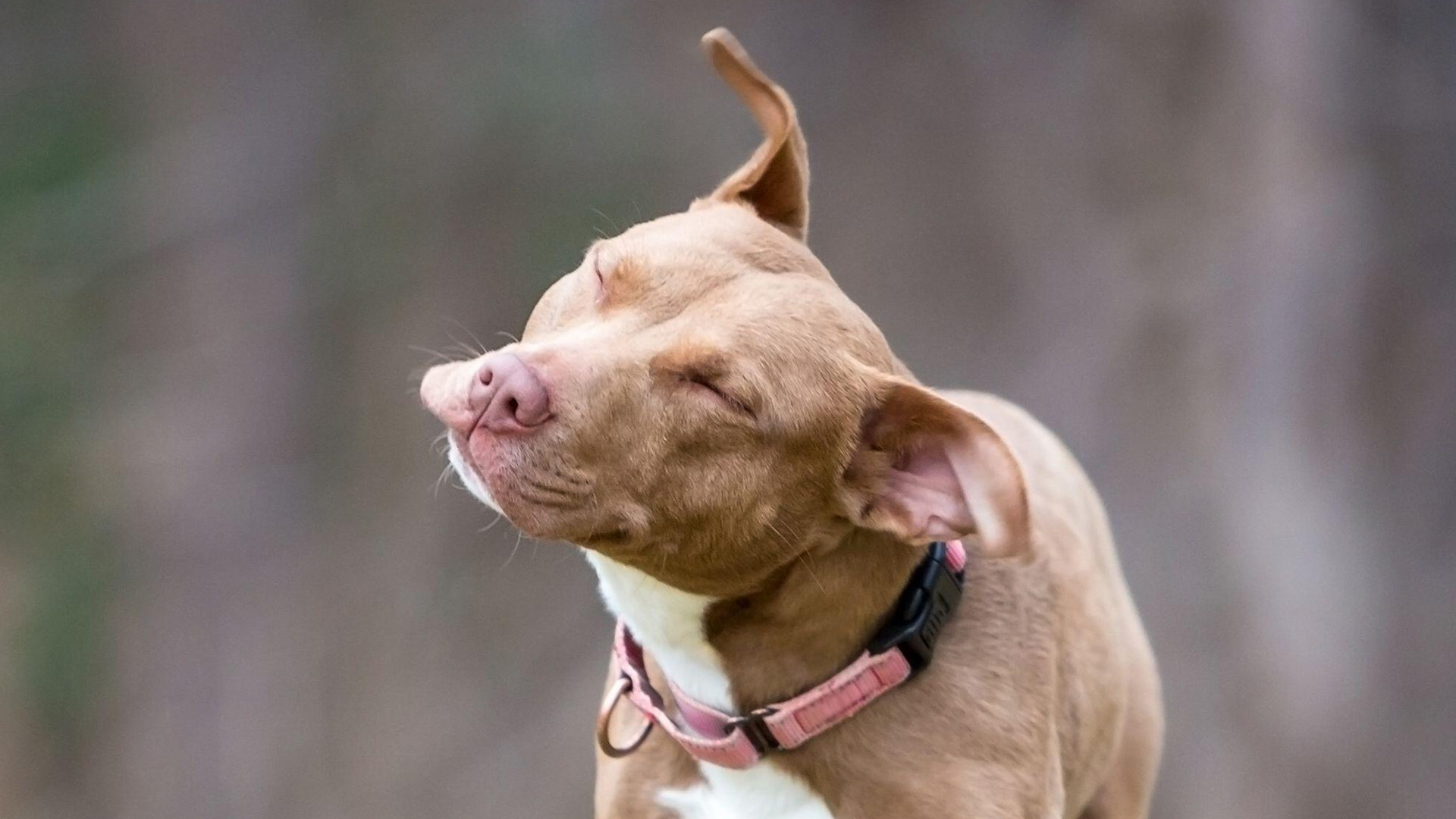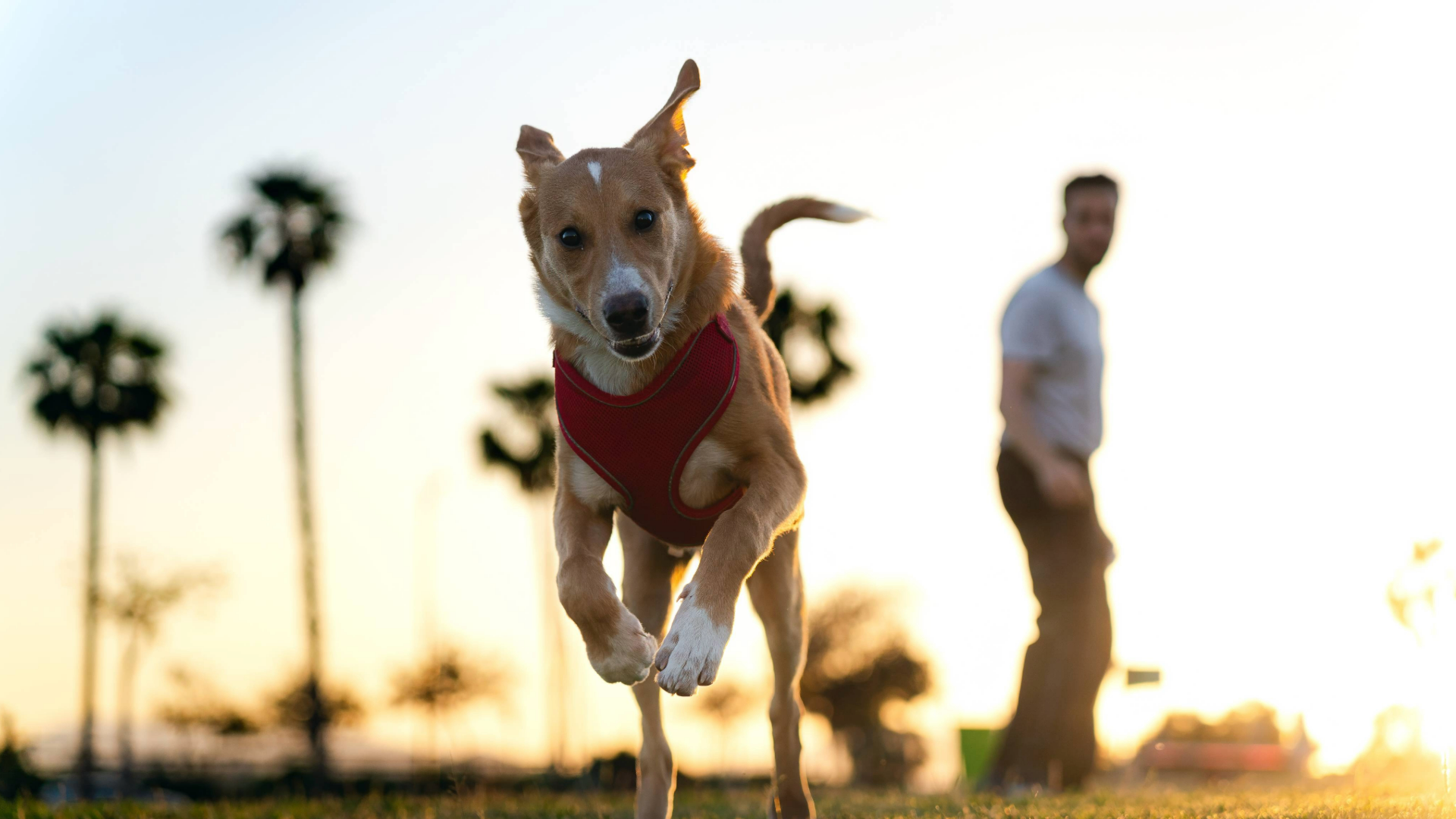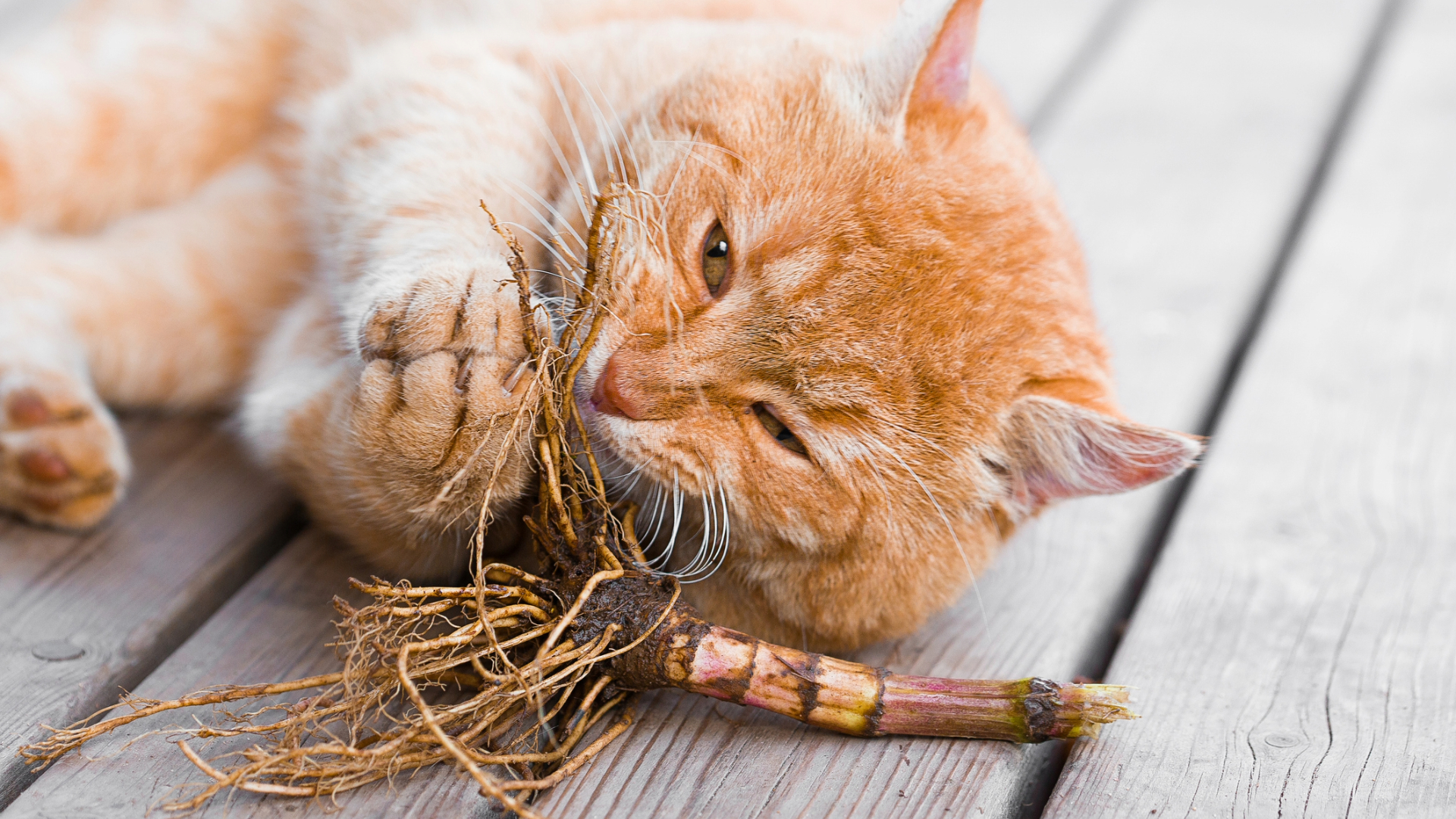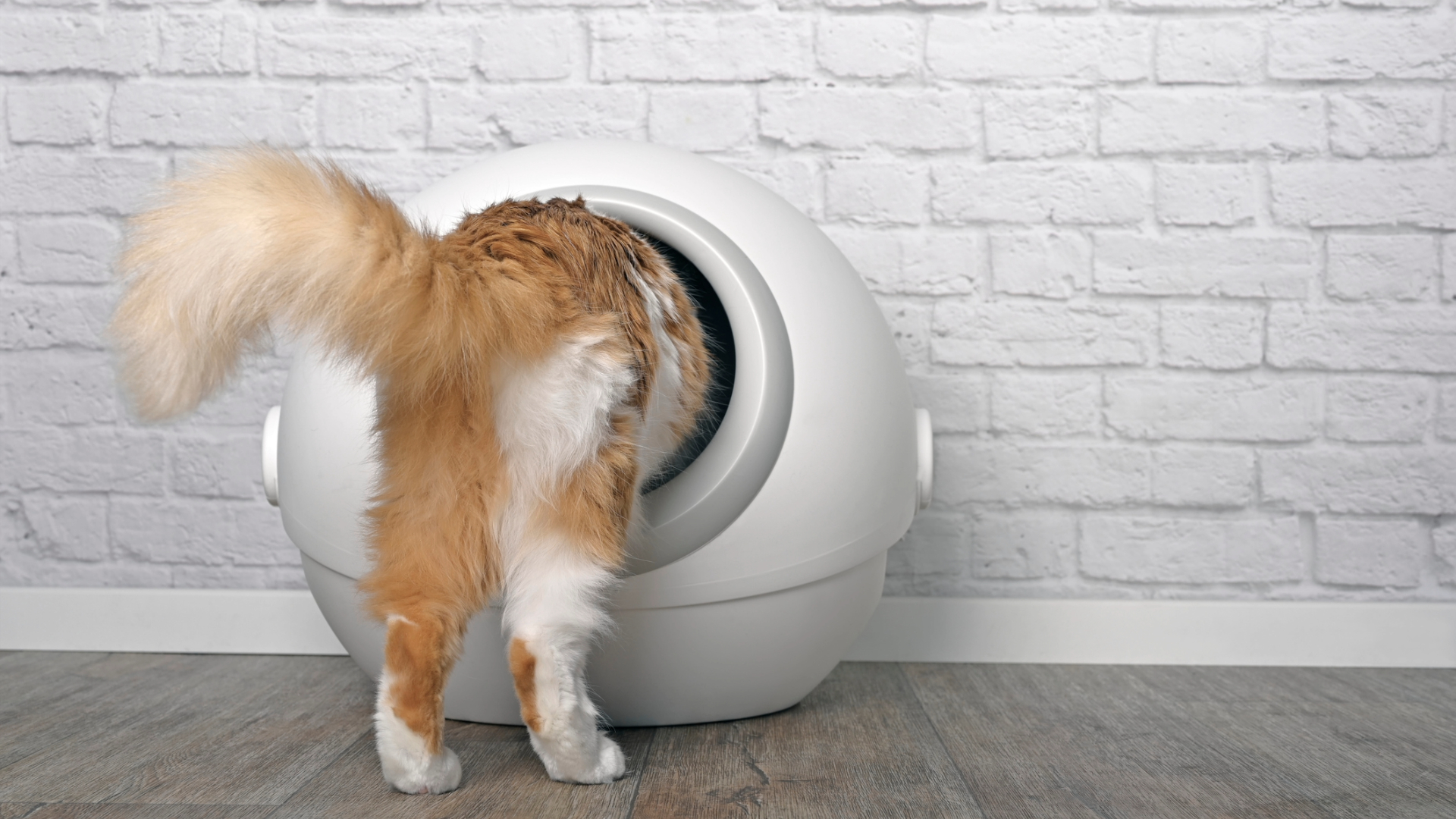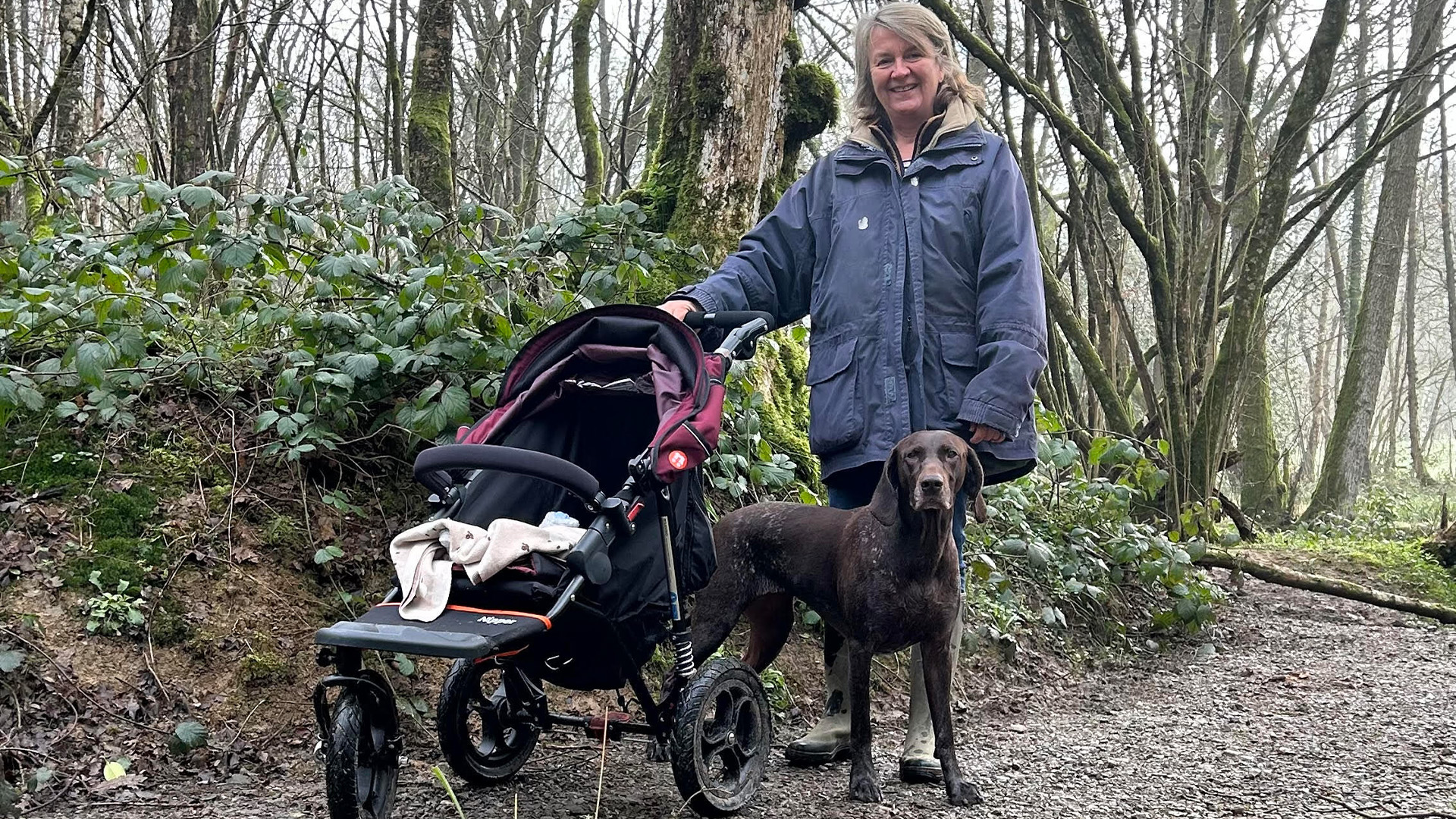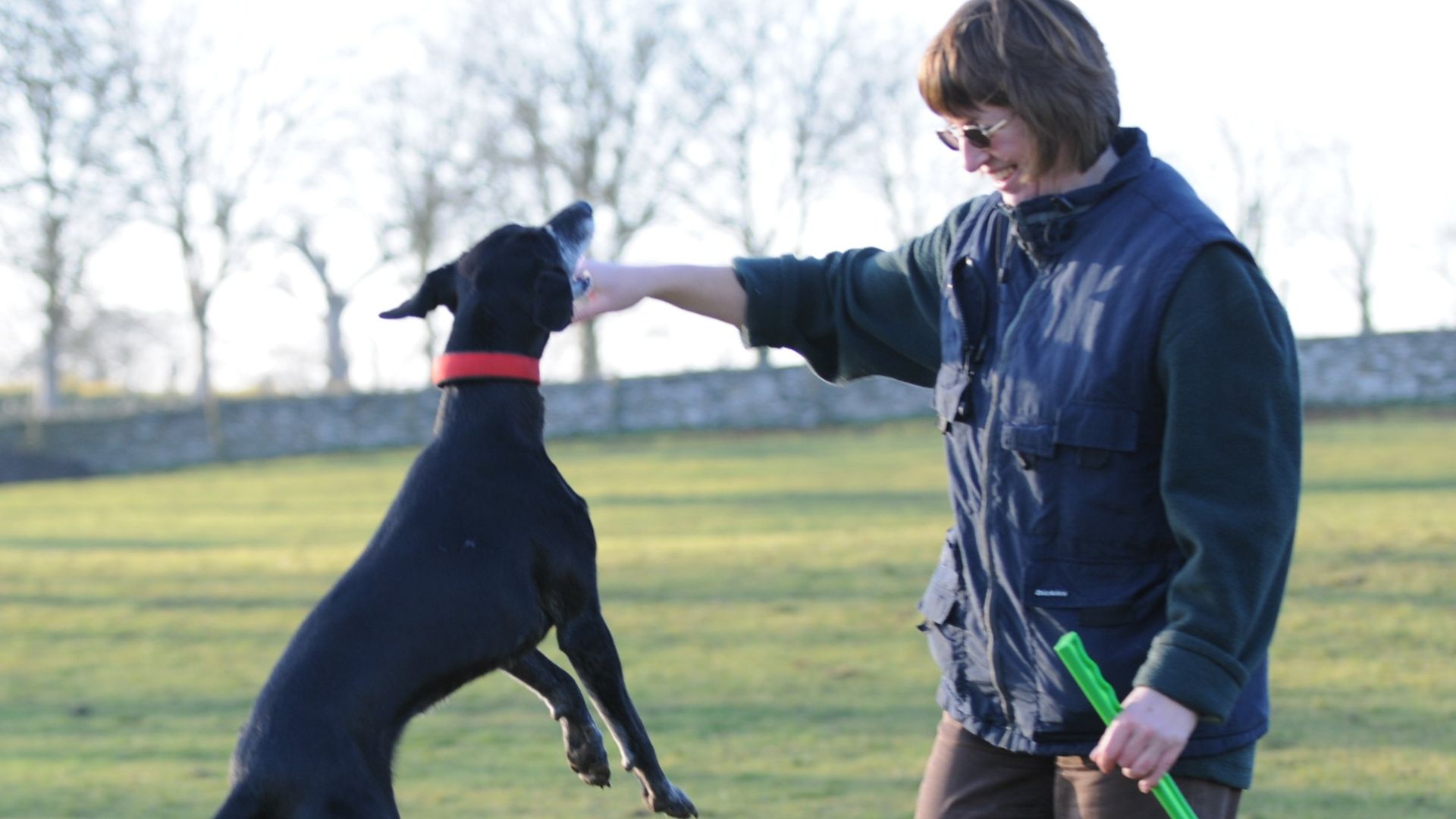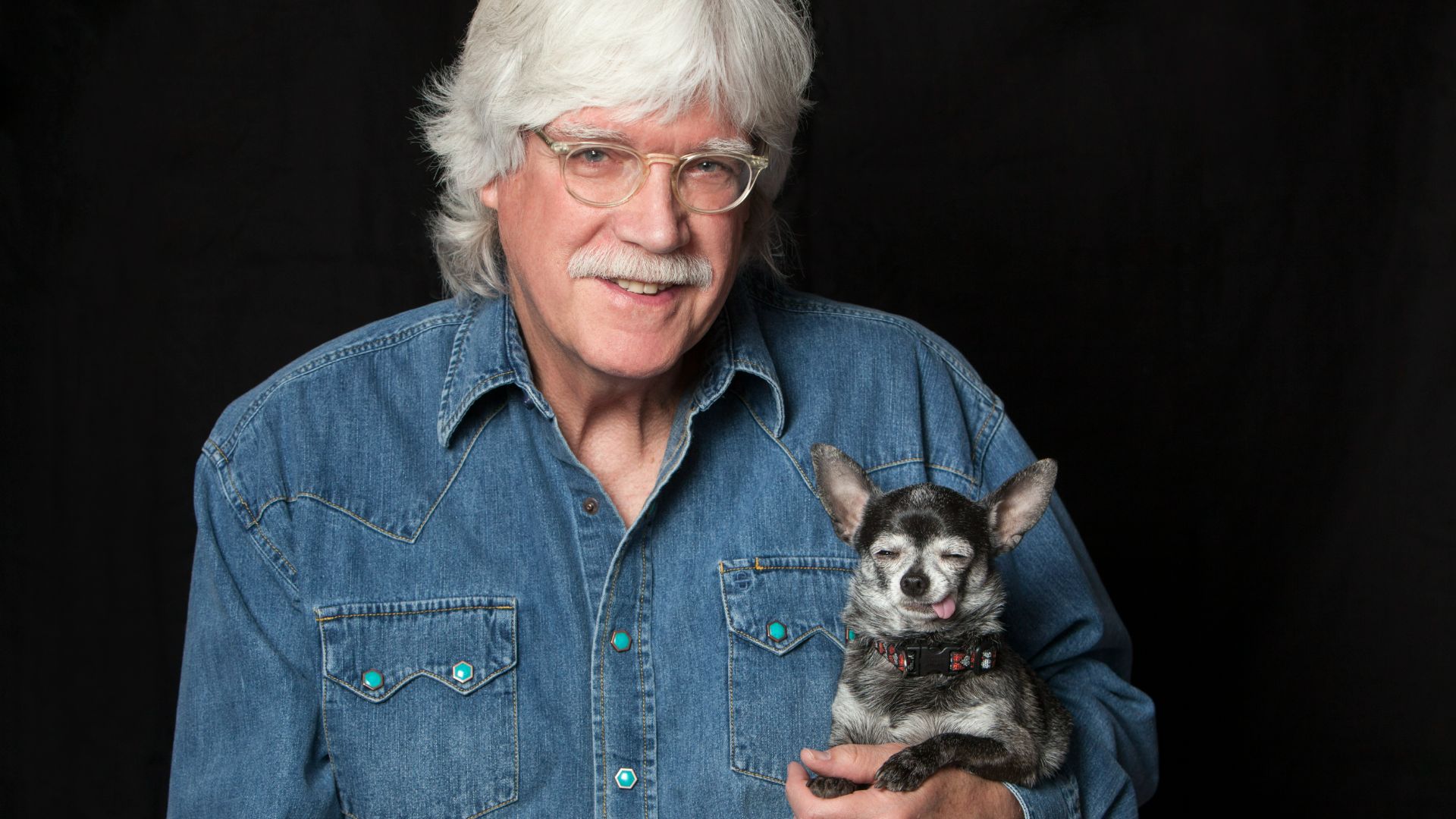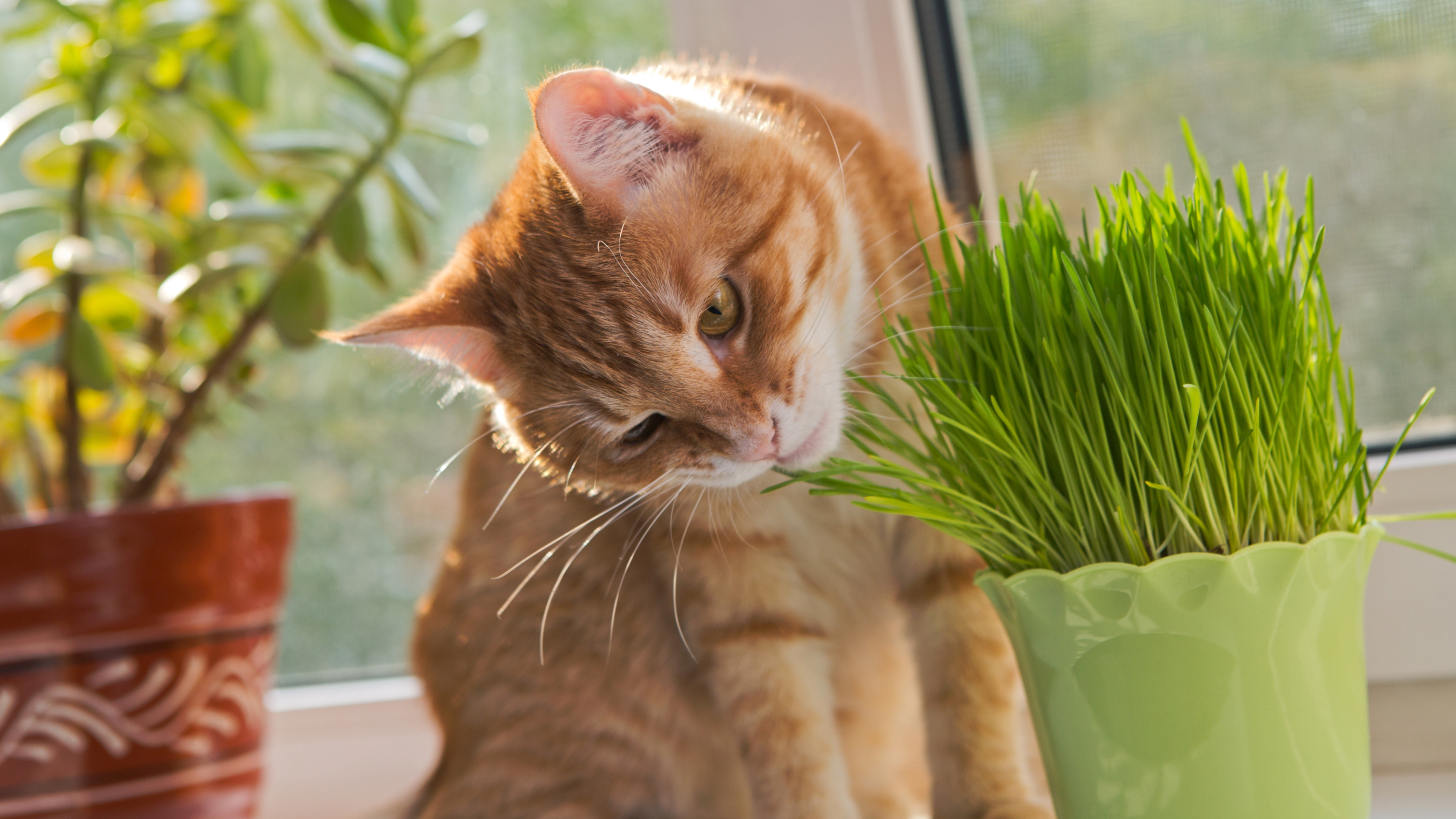Why do dogs sleep so much? What's normal and not
If you're asking “why do dogs sleep so much?”, one of these six things could be to blame

There are several possible answers to the question, “Why do dogs sleep so much?” Age, activity levels, mental stimulation, and illness can all come into play when your dog is sleeping more than normal.
It’s important to remember that every dog is an individual – some will sleep for most of the day, and others are more active. According to one study, the ‘average’ dog sleeps for 10.1 hours, with adult dogs sleeping for 30-60% of the night-time hours, and 3-28% of daytime hours.
How much sleep do dogs need by age?
The amount of sleep a dog needs varies between individuals as well as with their age. For example, 8-week old puppies may have different sleep needs, with some sleeping a lot more than others. In general, though, puppies need more sleep than adult dogs. Usually, this is in short bursts, just like human children, and will be throughout the day. Add all these power naps up, and your puppy will sleep for around 18 hours a day.
Adults, on the other hand, need less sleep – usually around 14 hours. Your dog might spend more time than this in their bed, but it’s likely they’re resting or dozing rather than really asleep. And as your dog gets older and becomes a ‘senior’, you might notice them sleeping a bit more again.
What defines a healthy sleep schedule?
Unlike humans, dogs are generally pretty good at going to sleep when they’re tired. And since all dogs are individuals, a normal sleep schedule for one will be different than that for another. Having said that, we’d like dogs to spend the majority of the night asleep – so that’s 8 hours or so. Luckily, dogs have adapted well to this. It’s impossible to know the sleep schedule of a non-domesticated dog, but ours tend to have the majority of their sleep between 9pm and 6am. They also tend to have a drowsy period in the afternoon.
As long as your dog is happy and healthy, and appropriately awake and active when they’re awake, it’s likely their sleep schedule is fine for them. However, if you have a dog that struggles to sleep or an adolescent that doesn’t take naps, you might want to set a schedule. In this case, aim for ‘sleep time’ from 9pm to 6am. Then you can factor in one or two hours of downtime/quiet time during the morning.
Whilst you can’t force your dog to sleep during this time, it’s a good idea to give them the opportunity to – stop play, become very boring, and consider encouraging them to go to their bed or their crate. A stuffed Kong toy won’t let them sleep, but it will give them a rest from strenuous activity. Again, you should try to make time in the afternoon for them to sleep – try to determine this by watching your dog and seeing when they become drowsy. If they don’t seem to become drowsy, try putting them to bed or in their crate for an hour or two around 3-4 pm to encourage them to nap. They are more likely to settle for a sleep on a full stomach and after a walk.
Signs your dog’s sleep is abnormal
When should you start worrying that your dog’s sleep is abnormal? Changes in sleep behavior could be a sign that something is wrong – so if you notice a sudden change in your dog’s sleep patterns, it’s worth taking a closer look.
Between sleep, your dog should be fully awake and active – sluggishness even when awake is a concern. And you should always be able to rouse your dog – if you cannot wake them, then you should call a vet immediately.
1. Age
If your dog is very young or very old, it’s possible that age is one of the reasons they’re sleeping so much. Young dogs will grow out of it, but old dogs may need some lifestyle changes or even some medication to help with dementia if this is disturbing their sleep.
Young puppies sleep more during the daytime than older dogs and require frequent naps in order to process everything they’re learning. It’s normal for a puppy to fall asleep halfway through playing or exploring. As long as they are alert in between naps, this is nothing to worry about.
Senior dogs also need more sleep than adults. Like puppies, they will often have short, frequent naps throughout the day. Their sleep at night can be broken, especially if they’re suffering from Canine Cognitive Dysfunction (doggy dementia) which changes their sleep-wake pattern.
2. Boredom
Dogs that get bored and under-stimulated tend to sleep more than normal. After all, it’s one of the few ways they can pass the time. These are often high-energy dogs who are not having their exercise or mental stimulation needs met. Other signs of doggy boredom include anxiety, destructiveness, and pacing.
If your daily walks have reduced or you aren’t spending as much time playing with your dog as usual, it might be worth considering boredom as a reason they’re sleeping so much. Try a new training regime, feed them using the best dog puzzle toys, or getting a dog walker to take them out for a lunchtime stroll.
3. Illness
Lots of illnesses can cause lethargy, which can make your dog sleep more than normal. Heart disease, dehydration, and anemia are all causes of lethargy, but most illnesses can cause your dog to rest more.
If your dog is lethargic, it will sleep more than usual. They might be reluctant to get up, even if you ask them to. Try offering a lead – a lethargic dog won’t usually show interest in going for a walk. If your dog is lethargic, it’s time to call the vet – there are too many possibilities to sort through them on your own.
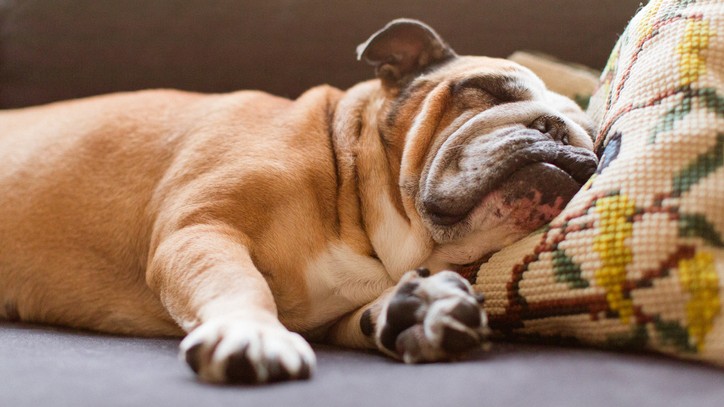
4. Pain
Dogs that are in pain may sleep more as a coping mechanism. For some, the pain of arthritis means they will stick to their bed, where it’s comfortable, rather than risk pain when they stand. For others, they may see their bed as a safe place where they’re less likely to feel pain.
Either way, if your dog is sleeping more, consider whether pain could be the cause. Look for stiffness when rising, or a reluctance to go out. Your vet will be best placed to get to the bottom of what’s bothering your dog.
5. Activity level
As we said, some dogs are lazier than others. Greyhounds, for instance, are often seen as an active breed – but they’re made for sprinting, and the rest of the time they like to chill out and save energy.
On the other hand, if you’ve recently increased your dog’s exercise, you might find them sleeping more when they’re home. New sports, longer walking routes, or a new playmate might all be tiring your dog out so that they need to sleep more.
6. Obesity
If your dog is overweight, they may struggle to get around as easily as they used to. Overweight pets may sleep more than normal rather than staying active. Unfortunately, this starts a vicious cycle, as they will burn fewer calories and gain even more weight once they’re lazing around all day.
Try to feel your dog’s ribs, they should be easy to feel without pushing through any layers of fat. Your vet or vet nurse will be able to create a diet and exercise plan to help your pet shift the extra pounds.
Why is my dog sleeping so much?
A dog sleeping lots isn’t necessarily a problem – dogs sleep for 10 hours every day on average, and younger and older dogs may need even more sleep. However, changes in the amount of time your dog has been sleeping can be concerning, especially if this is combined with lethargy when awake.
If you’re unsure, it’s best to talk to your vet, who will guide you and help you decide if your dog needs to be seen or not.
Want to help your dog sleep through the night? Here are the best puppy sleep aids that are worth the money. Or, read why shouldn't you sleep with your dog?
PetsRadar Newsletter
Get the best advice, tips and top tech for your beloved Pets
After graduating as a vet from the University of Nottingham, Dr Joanna Woodnutt went on to practice companion animal medicine in the Midlands. Since then, she has also written for countless online and print publications and is a regular contributor for Edition Dog Magazine.

